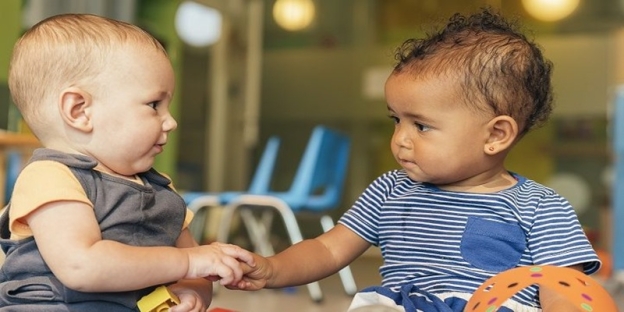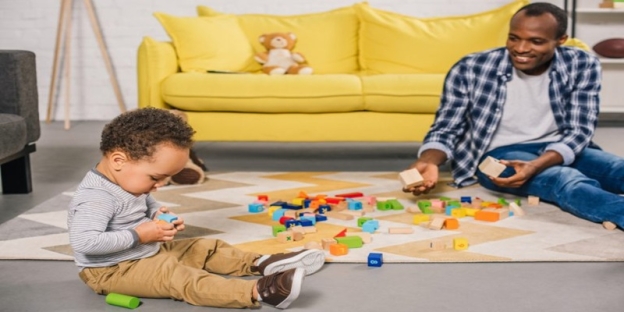The Importance Of Unstructured Play: Letting Kids Be Kids
As a parent or caregiver, you understand that play is crucial for children's development. But have you considered the unique benefits of unstructured play?
Unlike structured activities with set rules, unstructured play is more engaging and allows children to learn creatively as they explore and discover new things. This kind of play helps children develop problem-solving skills, creativity, independence, and the ability to socialize with others.
Unstructured play opens up a world of creativity for kids, helping them learn and grow in unique and innovative ways.
Unleashing Imagination: The Power Of Unstructured Play

Fostering Creativity And Problem-Solving
Unstructured play is the starting point for creativity, letting children explore new worlds with their imagination. During unstructured play, children are free to let their imaginations run wild. There are no limits on what they can do or how their stories will end. This kind of play encourages cognitive flexibility and creative thinking, helping children find new ways to solve problems.
Growth In Social And Emotional Aspects
Through unstructured play, children learn to navigate friendships and manage their emotions effectively. It gives them space to practice patience, empathy, and problem-solving in real-life situations. When children play freely with others, they develop critical, essential social skills, including negotiation, conflict resolution, and empathy. These things also help children enhance their abilities in articulating different points of view, leadership and making friends.
Enhancing Physical Development And Wellbeing
Unstructured play often includes physical activities, which are vital for healthy growth and development. Whether it’s climbing trees, running in fields, or dancing, kids develop key physical skills. These activities help improve their balance, coordination, and motor skills. All types of play also lead to an inherent love for invigorating motion and physical activity, serving as the cornerstone for positive health and an active lifestyle in the future.
Developing Social And Emotional Intelligence

Social and Emotional intelligence grows within individuals through shared play. This is because when children play with other kids without any rules, they begin to understand the unwritten codes of society, what non-verbal cues mean, and even how to take other people's perspectives. Therefore, any communication in such situations assists with empathy, the most crucial skill for any constructive relationship throughout life.
Dealing With Conflicts
It is also apparent that during playing time, several fighting moments occur. Most of the time, kids are not allowed to do something like play traditional games because they do not know how to fight for it. The most complicated part of natural learning occurs when children can resolve their differences without the influence of adults.
Emotional Regulation
During play activities, children also learn how to experience a range of emotions that they may not typically express freely under normal circumstances. When children engage in role-playing, they can experience a range of emotions and learn to manage them effectively. As a result, the social and emotional impacts are observed, which help enhance self-awareness and regulate emotions in real-life contexts.
Resilience
Children often play freely and, in the process, encounter trial and error and also successes and failures. This helps build resilience as they are taught how to continue working regardless of the circumstances they face and how to start over again if they encounter a setback. By facing challenges and overcoming them during play, children develop the necessary skills and adaptability to tackle life's other challenges.
The Importance Of Letting Kids Explore And Discover
Social and emotional learning is another positive outcome when playing freely. Children benefit significantly from playing games cooperatively or competitively, sharing the same toys and resolving conflicts as a group. These experiences help children understand others better and build empathy.
Furthermore, the advantages of unstructured play include the ability of children to express and process their feelings without any relational strain, which in turn significantly enhances their emotional wellbeing and emotional management.
Creating a Play-Friendly Environment At Home

Designate Open-Ended Play Spaces
In some parts of the house, use designated play spaces. Children usually know what is required of them and where, so that they can play and design something. Soft furnishings, such as pillows and blankets, may become a fort for a day and an impromptu nook on the next. Also, a chaotic and empty ply box mathematically translates to numerous fronts. You encourage people to occupy these areas of flexibility and also motivate your kids to approach problems in unconventional ways.
Stock Up On Versatile Materials
Provide open-ended play materials and toys in your home, such as items to assemble, crayons, pine cones and shaped stones. These terms can refer to any items that meet your specific needs. It has been scientifically proven that traditional materials for developing young children, such as building blocks, are always beneficial because they encourage children to think of numerous ways to use them every time they are taken out.
Limit Screen Time
Although there is an advantage of technology in the contemporary era, it has a disadvantage if used too much, as in the case of excessively spending time on screens, which can prevent children from getting time and opportunities for 'organized' play. Devices such as TVs, smartphones and video game consoles ought to come with a manual, 'how much time' and under what kind of 'circumstances.' This challenges the kids to find other ways of entertaining themselves, which is likely to happen in the course, where there is more freedom. Instead of a screenplay, it offers something different, such as going out to play.
Embrace Messiness
Free-play scenarios can be quite untidy, but they serve as valuable learning points. Create an environment where it is okay for things to be a bit of a mess. Use washable paints and simple aprons to make clean-up easy after art activities. Finally, encourage a culture of tidying up once the activities are done. Implementing this also fosters self-reliance and discipline while allowing for the open expression of creativity.
Fostering a Child's Natural Curiosity And Creativity
Considering the benefits of free play, it is essential to acknowledge the child's development. For fostering the freedom to play, the old wisdom of constructivism proves helpful. Additionally, it allows one to appreciate risk and, most importantly, the joy of play, which is at the core of being a child. Allow kids to be kids, free from excessive adult direction. Believe that every child is willing to play; every child can learn. By creating a welcoming environment, you give your child the freedom to play, discover, and grow with joy every day.





